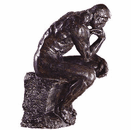Should Banks Be Public Utilities?: Ethical Markets 4 (Enhanced DVD)
Product Description:
Where bank-based financial systems and strong labor regulation are present, banks have the potential to act as effective contract enforcers. The argument that banks should be labor market mechanisms is the subject of Should Banks Be Public Utilities?: Ethical Markets 4 (2012).
In markets where public-private partnerships following the turmoil of structural adjustment and privatization of other once government owned and operated infrastructure in the 1990s, such as energy infrastructure, the “public utility” served as a regulatory mechanism; coinciding with the democratization process leading to new capitalist formation. Post the global financial crisis of 2008 and widespread government bail-out of big banks and investment institutions once thought to be TBTF (Too Big To Fail), economic solution is proposed in the “Bank as Public Utility”.
Financial determinants of general economy are the focus of new-Keynesian theories, whereby market imperfections (structural adjustment costs or information asymmetries) are financial constraints. Parallel to Austrian Economist, Hayek’s philosophy on labor and macroeconomic growth, modern economies are first and foremost subject to the intermediation of financial institution investment activities (i.e. the “buy” and “sell” of market securities).
Case studies on multinational FDI and market entry offer key insight into the limits of corporate expansion. Bank as public utility offers solution stakeholder risk: 1) where labor demand is the result of financial determinants; and 2) liberalization of labor and financial markets is the goal.
Should Banks Be Public Utilities?: Ethical Markets 4
In markets where public-private partnerships following the turmoil of structural adjustment and privatization of other once government owned and operated infrastructure in the 1990s, such as energy infrastructure, the “public utility” served as a regulatory mechanism; coinciding with the democratization process leading to new capitalist formation. Post the global financial crisis of 2008 and widespread government bail-out of big banks and investment institutions once thought to be TBTF (Too Big To Fail), economic solution is proposed in the “Bank as Public Utility”.
Financial determinants of general economy are the focus of new-Keynesian theories, whereby market imperfections (structural adjustment costs or information asymmetries) are financial constraints. Parallel to Austrian Economist, Hayek’s philosophy on labor and macroeconomic growth, modern economies are first and foremost subject to the intermediation of financial institution investment activities (i.e. the “buy” and “sell” of market securities).
Case studies on multinational FDI and market entry offer key insight into the limits of corporate expansion. Bank as public utility offers solution stakeholder risk: 1) where labor demand is the result of financial determinants; and 2) liberalization of labor and financial markets is the goal.
Should Banks Be Public Utilities?: Ethical Markets 4
- DVD
- ISBN 978-1-61753-749-3
- Run Time (27 Minutes)
- Copyright 2012
- Closed Captioned (CC)
Customer Reviews
Copyright © 2002-2025 Madison Art Shop™ LLC. All Rights Reserved.

















